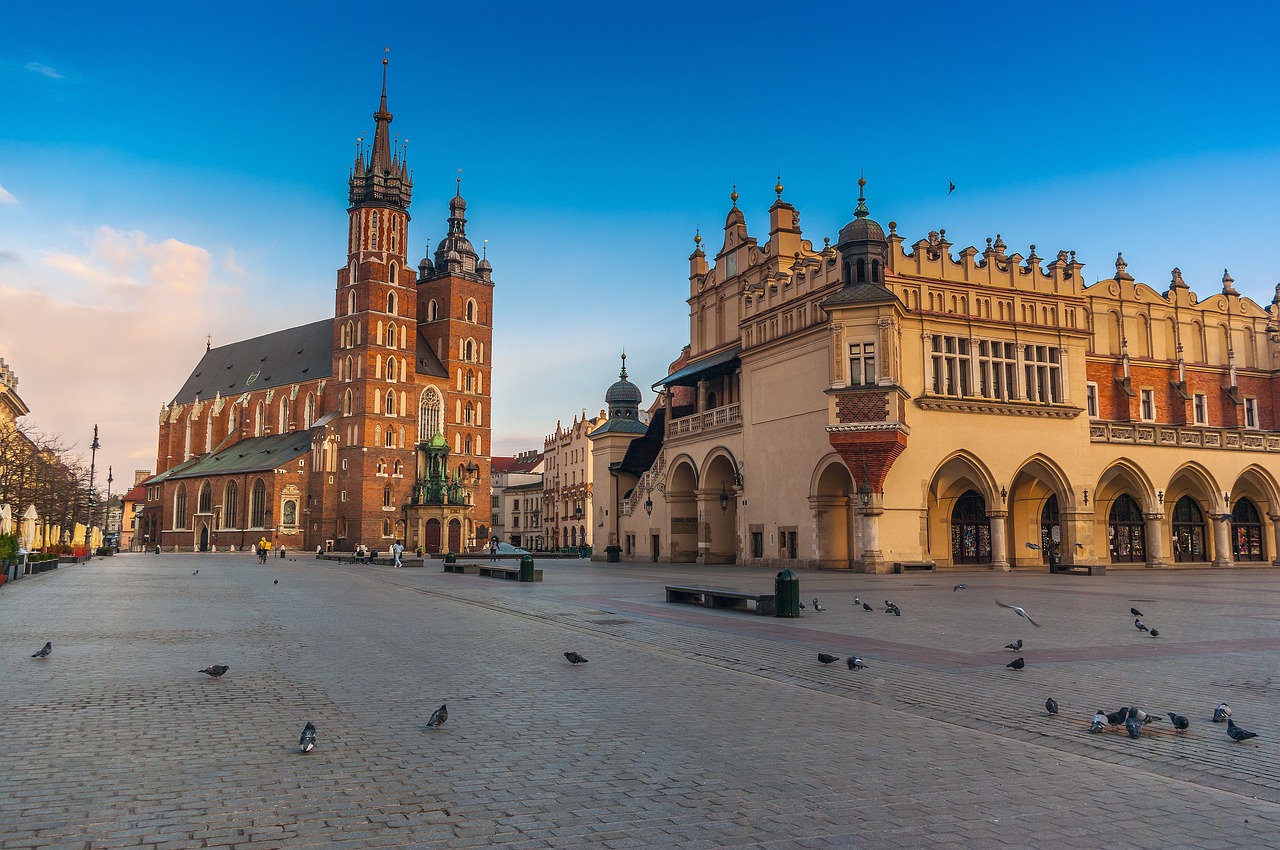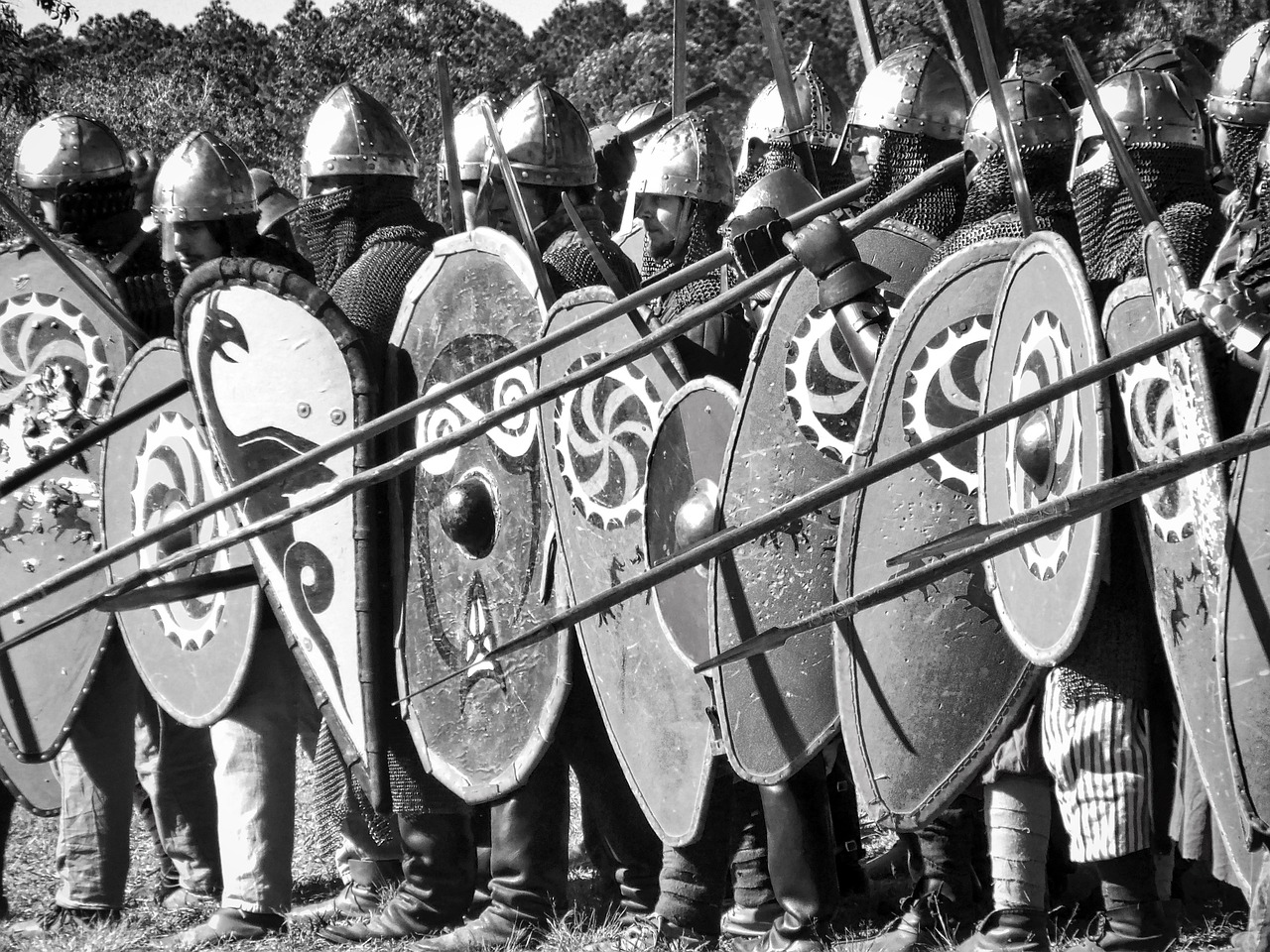


Who doesn't know Krakow's pigeons proudly strolling around the Market Square and around the Cloth Hall? These pigeons, next to the Wawel Dragon and Lajkonik, are one of the most recognizable symbols of the royal city. Admittedly, not all of them evoke only positive associations, and once in a while you can even hear nasty calumnies about their negative impact on the hygienic conditions in the city, but these voices are lonely and not very significant. How can you associate herds of these adorable cockers with something inappropriate and inbred, right? Well, that's not possible! And we, in homage to these feathered dandys, decided to take a look at their fairy-tale genesis and the extraordinary, and yet almost forgotten, prince Henry IV called the Righteous. Therefore, we invite you on a journey back in time to the ancient 13th century and the last years of the so-called district fragmentation.

Main Square of the Old Town of Krakow
You will admit that this headline may sound ridiculous. We are fully aware of this, but it does not mean that we intend to distance ourselves from it. We wrote it ourselves and we intend to defend it. So, listen to the story of Krakow expedition of the Duke of Wrocław and its ornithological repercussions.
Seven hundred years ago, it was much further from Wrocław to Kraków than it is today. After all, there were no cars, and no highways, and the two cities were separated by almost a few borders, forests, and rapid rivers, where it was in vain to look for a permanent bridge. It so happened, however, that the growing ambition of the Duke of Wrocław, Henry IV, known as Probus, or the Right One, constantly pushed him towards Kraków and the coronation insignia resting there. The brave Piast wanted to take the capital city and decorate his temples with the crown of his ancestors with papal anointing. So he took appropriate steps, summoned Silesian knights, and headed east, far, far away, where the cold flash of the royal diadem lured him.
Henry IV did not move to Krakow, trusting only in the strength of his regiments. He was anointed by the dying lord of the Krakow domain - Leszek the Black, and the German townspeople of Krakow were also pleased with his visit. Thus, having behind him the will of the deceased ruler, the favor of rich councilors, and the troops encased in steel, he deeply believed in the imminent fulfillment of his royal ambitions. However, as luck would have it, an obstacle appeared on his way that was both mundane and absolutely crucial, an obstacle that was often stumbled over by those much bigger and more powerful than him...
The Silesian ruler entered Kraków and established his rule in Lesser Poland. Proud and haughty, he received the homage of many cities and knights. His pride, however, was offended by the fact that instead of the royal title, he heard again and again only about the Duke of Krakow, and this was definitely not enough for him! Therefore, the proud Henry immediately inquired and found out how he could become a full-fledged king and extend his reign over all of Poland. For behold, the cunning advisers told him, no one had ever been crowned in Poland without the consent of the Pope, and it was his blessing that the Silesian prince should seek. And the blessing could be obtained for the appropriate sum of money in a shiny and clinking silver coin. However, luck wanted that Henry IV, despite his honest integrity, could not pass for Croesus. So he was faced with a problem that seemed to have no solution.
However, the Duke of Wrocław did not surround himself with wise and learned people so that they could not remedy the concerns of their principal. Soon there was someone kind who whispered a word here and there about a talented old witch residing in Zwierzyniec. This witch had, according to well-wishers, a great and terrible power. Desperate, the prince decided to put his immortal soul on the scales of ambition and went to the dingy seat of the old enchantress. And she took him in a truly lordly way and revealed her plan.

Behold, she said, the gold is hidden among the stones from which the towers of St. Mary's Church were built. It is enough to turn the Silesian knights into obedient pigeons, and they will immediately rise to the heavens to obediently peck out pebbles, which the good fairy will turn into gold. The prince, oblivious to the fate of his vassals, agreed to the witch's plan, and she did as she said. The knights, transformed into silver-feathered birds, fluttered their wings, surrounded the church towers in a swarm, and, with a spirit worthy of men-at-arms, began to peck out small stones that turned into pure gold in flight. Old people say that this is how Prince Henry unloaded three full wagons with gold bullion. He had more than enough money and could easily go to the Holy See to apply for the royal crown. Only who could accompany him on this distant journey, since all his knights were cooing somewhere among the roofs and windows of Krakow? And that's what the witch did. She ordered the prince to hire men-at-arms for part of the gold, and then go to Rome, and there procure a crown of pure gold, the brilliance of which will turn the pigeons into human form. Overjoyed, Prince Henry agreed and to this concept, swore to his feathered servants an imminent return and reversal of the bird's metamorphosis, and then he went West as fast as he could.
Hired men-at-arms, however, were not good companions. For they had no regard for princely oaths and obligations. They preferred to have fun, drink, and feast. They quickly infected their master with this frivolity. Prince Henry has proven more than once that he can have fun like no one else. It would be enough to ask the bishop of Wrocław, Tomasz, who took the castle and organized a lavish tournament at his expense.

So the prince lingered on his way, and instead of rushing to Rome he organized new feasts, and was almost forgetting his oath. The relatives of the enchanted knights didn't like it, oh they didn't. Those most embittered plotted against the prince's life. They soon moved from thoughts and words to deeds and during one of the subsequent feasts they poisoned their prince, thus signing the sentence on their loved ones, who were to remain in Krakow in the form of birds until the end of time.
Krakow's silver-feathered pigeons are still faithfully waiting for their master, who will appear in the majesty of a golden crown. They are still waiting and bravely guarding the city entrusted to their care. So maybe it's worth looking at these winged warriors with a slightly kinder eye, after all, guarding a city, even as beautiful as Krakow, can be a pain after seven hundred years of service, can't it?
If you want to know the true face of Krakow's pigeons and learn about other unusual stories about the royal city, then rely on our guides who will open the treasury of Krakow's secrets to you.